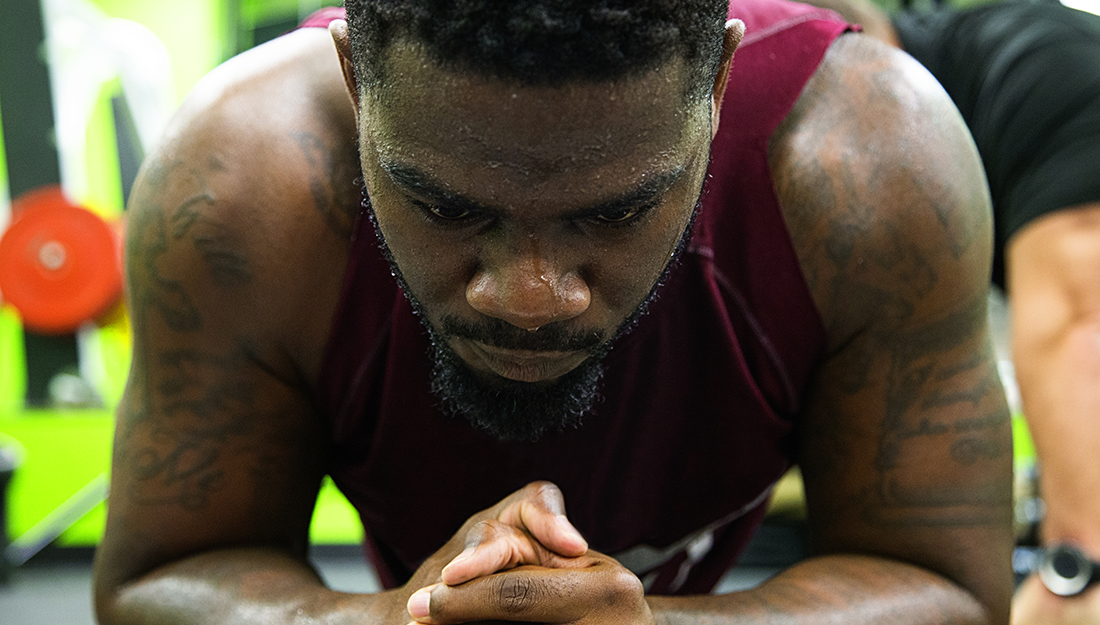You Asked: Which is more important—sleep, diet or exercise?

As the year begins anew, so do the goals of many. One of the most commonly made resolutions is to live a healthier lifestyle. For a vast majority of people, that goal involves vowing to make improvements in diet and exercise but rarely sleep. It is easy to fall off the wagon when it comes to achieving health goals. However, with even one simple modification, it is possible to get back on track to becoming a healthier you.
Sleep
Getting the recommended seven to eight hours of sleep each night is important, but consistency in the time of day those sleep hours occur plays a major role in regulating our internal body clocks, which regulate sleep-wake schedules, metabolism and immune responses. “Our body clocks, like your watch or clock on your computer, are only good if they’re keeping accurate time,” said David Earnest, PhD, a professor at the Texas A&M College of Medicine who studies circadian rhythms (our 24-hour body clocks). “No longer are we a nine-to-five society, but as long as a person is consistently going to sleep within the same hour or two each night, the body will be able maintain its schedule more efficiently.”
Indeed, sleep, diet and exercise are each important, and if you neglect any of them, it’s not ideal. “However, sleep is often most neglected, and when sleep is compromised, it doesn’t allow people to mentally, emotionally and physically recover, which commonly holds people back from being all they can be,” said Jesse Parr, MD, a clinical professor with the Texas A&M College of Medicine and team physician for the Texas A&M University Athletic Department. And as we all know, when we are sleep-deprived, it is difficult to maintain a healthy diet or get enough exercise.
Diet
Diet is essential to maintaining health, but the various recommendations are endless and overwhelming. Parr recommends to both his patients and athletes that they follow the guidelines of Choose MyPlate, which emphasis that small changes—such as simply reducing the amount of sugar-loaded drinks consumed—matter.
Earnest recommends avoiding foods, like fast foods, cheeses or pizza, that contain high levels of saturated fats. You know, the good stuff we seem to crave when school or work is keeping us up late. Still, these types of foods disrupt the internal timing of the body clocks by shifting their settings and essentially making them experience jetlag. “The whole process starts spiraling into a situation that we believe might be a critical factor in the epidemic of obesity and type 2 diabetes,” Earnest said. “If you are going to eat saturated fats, it is best to eat them in the morning, and consume fruits, vegetables or nuts if you are eating within three hours of bed.”
Exercise
Working out tends to be one of the more difficult regimens to maintain because if results do not appear within the first couple of weeks of beginning an exercise program, people get discouraged and often give up. However, noticing results depends on what type of exercise goals were set, whether it was to be healthier, lose weight or get stronger for performance. When someone starts being active, they will use muscles they have not used before and will become sore, but people can start feeling better and notice they are getting stronger after a couple of weeks. However, exercising to lose weight takes longer, often a few months. The American College of Sports Medicine recommends getting at least 150 minutes of moderate exercise or 75 minutes of intense exercise per week. Alternating aerobic and resistance exercises is important for keeping the entire body fit.
Doing a high-intensity workout later in the evening may make it difficult for the body to wind down prior to bedtime, but, according to Parr, “exercising when time is available, even if that workout occurs in the evening, is more important than not exercising at all.”
So, which is it?
It is commonly said that health benefit ratio of diet to exercise is 80-20. However, when sleep was factored in, Earnest said his ratio analysis of the health implications of the three would be 60-30-10, sleep, diet and exercise respectively. “While each factor is important individually, the lynchpin in health is how we organize our bodies in time, which consists of how our internal body clocks are regulating our sleep-wake cycles and how mealtimes fall and what energy we have for exercise,” Earnest said.
All three factors are very important to overall health, and Parr concluded that all three are equally important to the trifecta necessary for a healthy lifestyle. “We’re biologically designed to be active, but we can’t be active unless we eat properly and get plenty of sleep,” said Parr. However, he warned not to bite off more than you can chew when setting health goals. “Make one resolution you can easily be successful with, even if it’s modest, and then make new ones,” he said.
Given that sleep is the most neglected, a little extra shuteye and regular sleep-wake times may prove quite beneficial to your health and get you back on track with your health goals. So try this one goal: go to bed within the same hour every day this week; you just might start to feel better.
Media contact: media@tamu.edu


